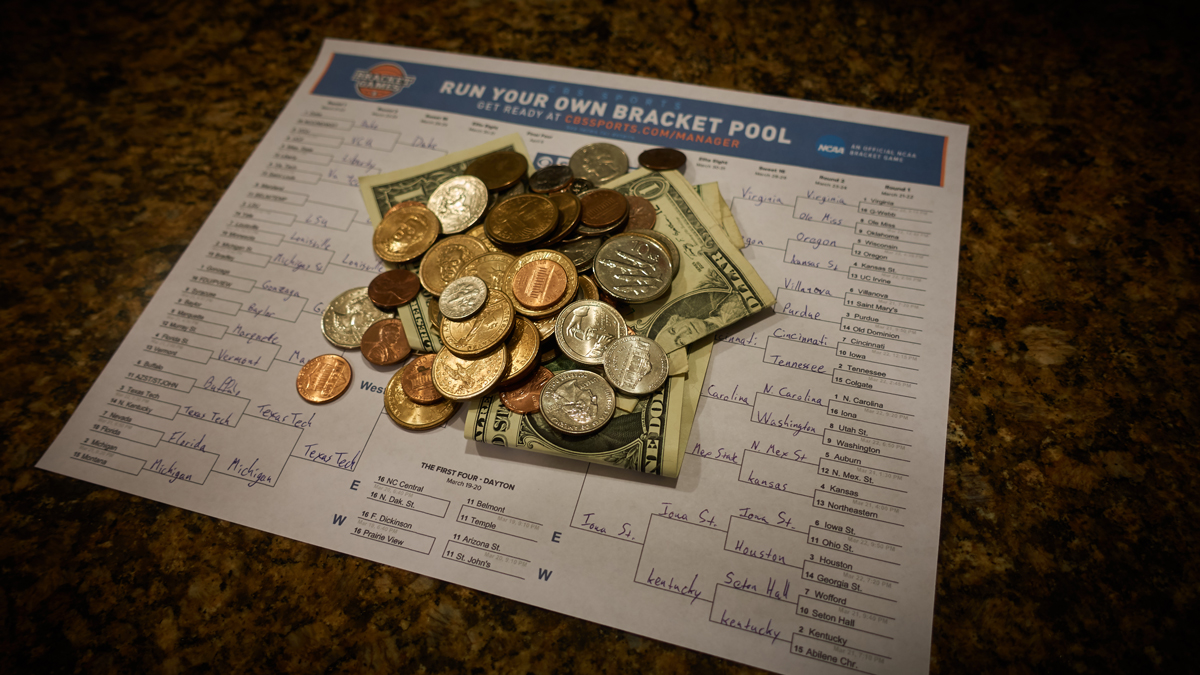
Shutterstock
March 13, 2023
March Madness at work can be beneficial or costly, SIU professor says
CARBONDALE, Ill. — As people and workplaces get involved in the hype of March Madness, there is both a potential for costly lost work time and productivity as well as the benefits of positive relationships, according to Steve Karau, a Southern Illinois University Carbondale professor of management who has studied cyberloafing.
“March Madness in the workplace can be distracting, costly and on occasion even dangerous, but it can also be a fun, positive bonding activity that makes the workplace more enjoyable for a few minutes,” Karau, who can be reached at skarau@business.siu.edu, said. “As long as people don’t spend too much time with it, the benefits may outweigh the costs at least in some cases.”
The upsides
According to a 2019 survey, many businesses are open about their office-time involvement in the tournament, and even people who aren’t typically sports fans often join the bandwagon. While employees in studies admit loss of productivity, they also insist they get their work done, and they say workplace positivity achieved through their activities is a definite plus.
Since March Madness is a fairly short-lived phenomenon, it can make sense in many cases for businesses to let the passion take its course, within reason, Karau said, and look for the positives such as:
- The potential for workplace bonding and cohesion, making the workplace more enjoyable.
- Karau notes that sometimes, taking a quick break to watch a funny cat video or participate in March Madness can give people the chance to refresh mentally and then be more productive.
- Employee happiness and positive outcomes. Numerous studies have shown that contented employees are typically more loyal and committed, so if a workplace permits some March Madness, the result is likely improved employee satisfaction, retention and long-term productivity.
 Karau noted that one survey revealed that 84% of the respondents said office pools make their jobs more enjoyable, 79% said pools improved their work engagement and half said they met with coworkers after hours to watch a game, leading to closer workplace relationships. In addition, 73% of the workers said they look forward to going to work more when they join in March Madness pools. He did caution that some states prohibit the pools and encouraged employers not to organize them.
Karau noted that one survey revealed that 84% of the respondents said office pools make their jobs more enjoyable, 79% said pools improved their work engagement and half said they met with coworkers after hours to watch a game, leading to closer workplace relationships. In addition, 73% of the workers said they look forward to going to work more when they join in March Madness pools. He did caution that some states prohibit the pools and encouraged employers not to organize them.
Karau said he and Ji Hoon Lee, a management doctoral candidate from Suwon-si, Gyeonggi-do, South Korea, are in the preliminary stages of a research project that will explore whether people can intermittently cyberloaf and experience an energizing effect and still be as effective or more so.
The costly downsides
Karau notes cyberloafing, which he has researched extensively, is a significant workplace distraction. Studies indicate the average American admits to wasting more than two work hours daily, primarily on personal internet use, with an estimated 90% of employees spending work time surfing non-work websites and 84% sending personal emails. A 2006 study indicated that the estimated annual productivity loss was between $54 billion and $85 billion. Several studies have indicated that young male workers are more likely than other people to cyberloaf.
Karau said March Madness can easily give people an “excuse” to cyberloaf. Economic analyses have suggested that around March Madness tournament time, the lost production could total some $134 million or more in lost wages and $1.9 billion to $13.3 billion in lost productivity.
“There are an infinite number of things you can do nowadays to distract yourself,” Karau said. “Some people use the internet really well, and some totally disengage. Although most people would never physically steal from their employers, when they spend time online doing non-work activities, they are essentially committing a form of electronic theft of paid hours.”
Issues that can result from employees getting “March Madness fever” include:
- Being distracted from the job they are being paid to do and using work time to watch games, fill out brackets for office betting pools or online competitions, and track team news online or in print.
- An exclusion or ostracism effect, such that while many in a workplace jump on the bandwagon and join the hype, those who don’t may feel left out or clueless.
- Fear of missing out and escalation of commitment issues. When people get hooked on checking the news, the scores, watching the games and so on, it’s easy to increase the amount of time spent on it, meaning more time away from work and more difficulty doing what you’re being paid to do.
“Much internet material and social media is by nature addictive — indeed much is designed to be so because business models are based on clicks or time spent on a video or site, so a quick check on something or a quick break can easily turn into a much longer distraction,” Karau said.
- Failure to get required work done or actual danger. Karau said if people involved in a customer service industry get too sidetracked, customers may take their business elsewhere. In some workplaces, such as factory line work, security positions, and health and safety careers, the distractions could actually result in injury or death of the worker or others. Conversely, he noted that with more people working remotely since the COVID-19 pandemic, they are accustomed to flexible work schedules and often make up the time lost and still accomplish work goals.
“In the latter situation, it’s performance over time that matters, and it’s fine for individuals to work when it feels best for them, as long as they put in the time and the overall work has quality,” Karau said.
How do people get hooked?
Karau said there are a number of reasons March Madness is so engaging and even addictive:
- Prestige – getting into the tournament is a big deal for schools and fans, and winning even a game or two boosts the prestige. He points out that SIU garners attention already for its unique name, the Salukis, and the team really got attention when it made the NCAA tournament 10 times, including six consecutive years in the early 2000s, as well as three Sweet 16 appearances.
- Knockout format – it’s win or go home for the teams, and for most, winning just a couple of games gets them to the Sweet 16 where they get major attention. For baseball and NBA basketball, the season ends with a multigame series instead of single elimination.
- Minimal time commitment required – the average college basketball game, unless there is overtime, takes just a couple of hours or less whereas other sporting contests, such as baseball or football, can easily last 3.5 hours or more. Likewise, there are only about 30-35 games in the average college basketball season as compared to more than 50 games in a college baseball season, over 80 in an NBA season and more than 160 in professional baseball.
- Anything is possible – there is a high potential for upsets and underdog wins, and the sport is conducive to streaks. Your team may be losing soundly and yet make a comeback to win.
“Even the very best teams lose maybe 20% of their games in a season, and almost always some small, unknown underdog team advances well into the tournament,” Karau said.
Other factors come into play
Karau said several psychological phenomena also emerge with March Madness that have an impact on how likely people are to get involved and how doing so affects them.
These factors include:
- Social identification. “Groups or social categories that we strongly identify with can influence our own personal identity, sense of inclusion and self-esteem,” Karau said. “Teams can be a strong source of social identification, especially when competing in important events or with fierce rivals. Teams that we support represent an in-group, and opposing teams are the out-group.”
- BIRGing, or “basking in reflected glory” when teams they support are successful. Karau said people personally identify with teams, especially winning ones. He said studies have shown that people are more likely to wear team or university clothing after a team wins and ascribe to a team the labels of “us” or “we” after victories but labels such as “they” or “those guys” after losses.
- Escalation of commitment. The more time, effort and money you invest in following a team, the more it is going to become an ingrained habit and the more you identify with them and keep following them.
“It’s not just about a team; it’s about our identity, being part of the team, being part of success,” Karau said. When teams win, their fans feel a personal victory and that feeling is perhaps even elevated when they have followed a team for a long time and the team eventually wins big time, as when the Chicago Cubs won the World Series in 2016 – the first national championship since 1908.
“March Madness is a fascinating thing, and it can have an impact on workplace productivity,” Karau said. “It can definitely have some negative consequences, but in some cases, there can be some positive payoffs as well. The number of distractions keeps going up, but when people have to get things done, they can also buckle down and get more efficient. As the law of forced efficiency states, when you have to get something done, you find a way. And those distractions can actually produce some pluses.”
